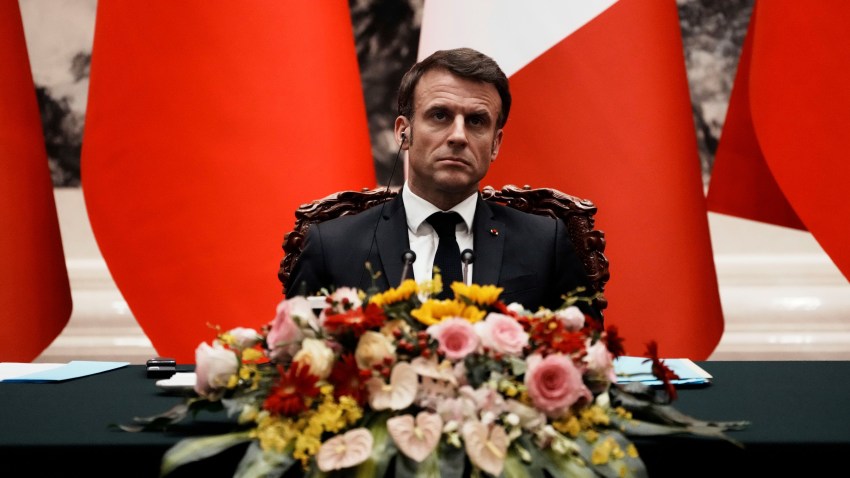Observers across Europe reacted furiously to remarks French President Emmanuel Macron made last week imploring Europe not to behave like “vassals” of the United States amid its intensifying geopolitical competition with China. But the reaction to Macron’s statements are more revealing than his original remarks, as his calls for European strategic autonomy from Washington are not new and date back to the beginning of his presidency.
Much of the fury on display across Europe is simply down to bad timing. Macron’s comments came shortly after his controversial state visit to China, during which he also made news by seeming to suggest that Europe should not necessarily come to the defense of Taiwan in the event of a Chinese invasion. An article in Politico that seemed to over-interpret Macron’s words, perhaps in order to pull in readers, did not help matters. Macron’s trip to China also overlapped with a visit to the U.S. by Taiwanese President Tsai Ing-wen. Tsai’s visit to Washington drew the ire of Beijing, which responded by sending its warships last weekend to surround Taiwan.
French officials framed Macron’s visit as a pragmatic attempt to find common ground with Beijing in a bid to boost commercial relations between Europe and China and pitch Europe as a third axis in the growing competition between Washington and Beijing. That is by no means a unique position on the continent. Several other European Union members, including Germany and Italy, have stepped up engagement with China with a range of commercial deals. Few of them have expressed a strong willingness to vociferously defend Taiwan’s sovereignty, and many have equally expressed a lack of desire to march in lockstep with Washington’s effort to contain Beijing.

